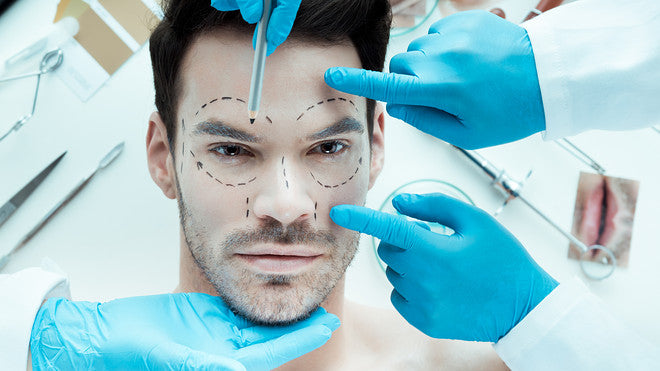
When planning for a plastic surgery procedure, it is normal to feel concerned about the final results. The results of your procedure depend on how well you take care of yourself.
Taking care of yourself after plastic surgery is as important as preparing for the surgery itself. Before your procedure, speak with your surgeon to fully understand the entire recovery process.
Patients will experience swelling, bruising, soreness, and drainage during the early days following a cosmetic procedure.
Although each surgery recovery is different, here are 6 post plastic surgery care tips to assist in your recovery.
Once you commit to having a cosmetic surgery procedure performed, you must be committed to attending all follow-up appointments recommended by your surgeon.
These appointments are necessary for your doctor to evaluate your recovery process and ensure no underlying complications from the procedure.
Often, patients are tempted to skip appointments because of their busy schedule, or they might feel well and satisfied with their results; however, do not miss any follow-up appointments.
Remember, following your doctor's recommendations will help you obtain the best results from your cosmetic surgery procedure.
As part of your post plastic surgery care, your surgeon will prescribe pharmaceutical drugs to manage pain, prevent infections, and minimize scarring.
Although many herbal remedies and natural supplements claim to accelerate the recovery process, combining them with prescribed medications can produce severe complications in your health, such as organ failure or damage.
Discussing this with your doctor before taking anything during the recovery process is crucial. To ensure you recover properly, you must consume all prescribed medication as directed by your physician.
After surgery, your cells will become weak and vulnerable, but your immunity can start to improve significantly with enough rest.
To ensure that your cells regenerate correctly, it is recommended to sleep at least 8 hours daily. When your cells do not receive proper rest, they are unable to protect your body against pathogens.
For the first few weeks during your recovery, your doctor may recommend limiting your activity and avoiding any strenuous activities. However, many patients make the mistake of believing they feel ready to resume regular activities before they are healed.
To achieve optimal post plastic surgery care results, you must allow your body to heal correctly by getting enough rest.
Your incisions must be kept clean and dry during the following days of surgery to prevent infections.
The type of plastic cosmetic surgery performed will determine when you can submerge yourself in the water again.
In the meantime, avoid baths, swimming pools, and hot tubs for at least three weeks after your surgery.
Your doctor will provide instructions about proper care of your dressings and drains, which must be followed to prevent infections. The dressings provided will have the right amount of compression to prevent inflammation and swelling.
Drains must be in a compressed state to function correctly. These must be emptied 3 to 4 times per day, and their output must be documented.
Drains and dressings are evaluated periodically during your post-op appointments to check for fluid retention signs and determine removal eligibility.
Your body uses the nutrients from nutritious food and water to replace superficial or deep tissue cells at the incision site. Vitamin C and Zinc are essential vitamins that promote wound healing. Additionally, green vegetables and healthy proteins speed up the process of healing.
As you adopt these new healthy eating habits, you must discontinue unhealthy eating habits as well. For instance, processed sugars and carbonated beverages should be removed entirely from your diet.
Avoid alcohol and nicotine for a few weeks after the surgery since they affect the coagulation of platelets at the incision site, preventing the area from healing.
To conclude, undergoing a cosmetic surgery procedure can indeed be a life-changing experience. Enhancing an individual's overall appearance is due to the incredible advancements in medical technology and methods.
Your cosmetic surgeon can help you understand the recovery phase to help you cope better during the process.
As the bruising and swelling begins to disappear, you will then be able to observe the final results of your procedure. This process takes much patience, but the results are undoubtedly well worth it when you keep the final goal in mind.
If you have lingering scars or slow healing wounds, talk to your doctor to see if a wound care supplement like WoundVite might be a good fit for you.
Your recovery experience is individual and will depend on the type of procedure performed.
By following your doctor's recommendations, consulting before you try anything new, and keeping all of your post-procedure appointments, you can be sure to reap the most benefits from your procedure.